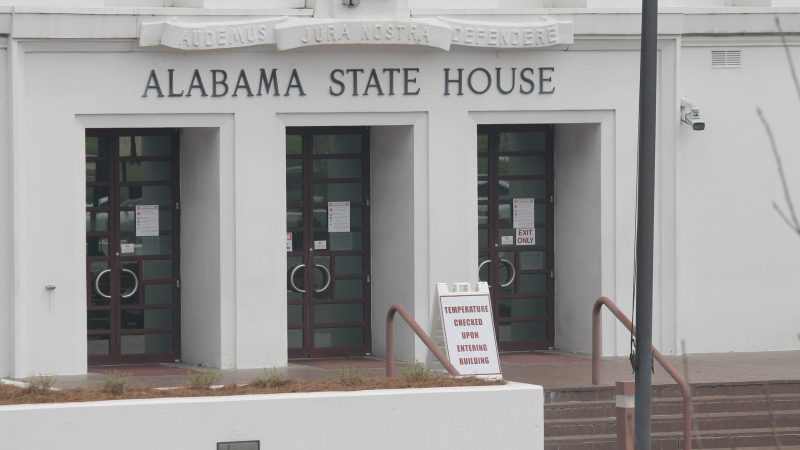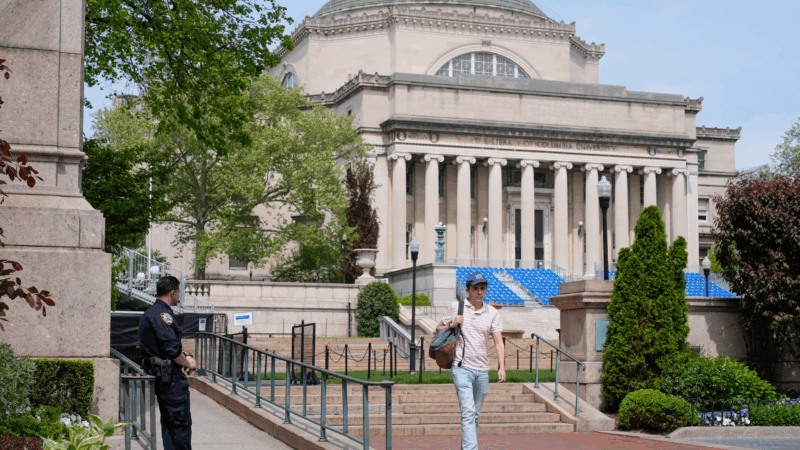‘Divisive concepts’ bill passes Alabama House
In the Alabama legislature, legislation that seemed dead can suddenly leap back to life. That’s the case with a bill that would ban teaching “divisive concepts” in Alabama classrooms. Last week, a House committee carried the bill over.
“That sometimes means the committee doesn’t want to deal with it,” said Todd Stacy, host of Capitol Journal on Alabama Public Television and publisher of the Alabama Daily News. “But it can always be brought back by the chairman which it was.”
Stacy offered an update on this week’s action in the legislature.
Divisive concepts bill
The bill would ban certain “divisive concepts” from being discussed in K-12 schools. The measure is considered a compromise from an earlier proposal that sought to ban critical race theory. This bill doesn’t mention that theory by name but does put restrictions around how issues of race, gender, and religion can be taught. For instance, it bans teaching that the U.S. is “inherently racist or sexist.”
The bill’s sponsor, Republican Rep. Ed Oliver of Dadeville, said the measure “prevents kids from being taught to hate America and hate each other.” But opponents, particularly Black lawmakers, argued it would impede accurate teaching of history and educators would avoid certain topics for fear of running afoul of the rules.
The committee passed the bill on a voice vote Wednesday within seconds of it being brought up.
“This bill had already had a significant amount of debate, a lot of public hearing, and lots of debate amongst the committee members,” Stacy said.
The proposal passed the House Thursday after about two hours of debate. The vote fell mostly along party lines with Republicans in support.
Todd suggested some House members were thinking about this being an election year when they acted on the bill. Next week, the legislature will be off for spring break and some lawmakers may be campaigning. This bill is popular with conservative Republican, base voters.
“They wanted to have something to show for it,” Stacy said. “A lot of these guys have primaries. They want to impress their very conservative voters to protect themselves in the upcoming primaries.”
Lottery bill
A House committee passed a bill Thursday that would authorize a lottery with the proceeds largely going to college scholarships. This lottery bill is different from a gambling proposal taken up last week which includes casinos and sports betting.
Alabama is one of five states without a lottery. Proponents have tried unsuccessfully for decades to enact a lottery. In 1999, voters rejected a lottery proposal by then-Gov. Don Siegelman. Political maneuvering and turf wars have kept gambling proposals from making it to the legislative finish line.
“I get the sense that House members want to vote on it,” Stacy said. “They’re tired of being told they can’t produce a gambling bill, that they’re useless on the issue.”
House Speaker Mac McCutcheon said he wanted assurances there would be enough support to pass a lottery bill to avoid getting bogged down in debate on the House floor in the final days of the session.
General fund
The House Tuesday unanimously backed a $2.7 billion general fund budget, the largest in Alabama history. The spending plan included a 4% pay raise for state employees. Most state agencies would receive funding increases.
The proposal included money for the Department of Mental Health to build two new crisis centers. Alabama’s Medicaid agency would receive funding to extend the length of postpartum care to new mothers to 12 months.
The budget will go to a conference committee to work out differences between House and Senate versions.
“Everybody in the building is pretty happy about where the general fund is,” Stacy said.
Includes reporting from the Associated Press
Chicagoans pay respects to Jesse Jackson as cross-country memorial services begin
Memorial services for the Rev. Jesse Jackson Sr. to honor his long civil rights legacy begin in Chicago. Events will also take place in Washington, D.C., and South Carolina, where he was born and began his activism.
In reversal, Warner Bros. jilts Netflix for Paramount
Warner Bros. says Paramount's sweetened bid to buy the whole company is "superior" to an $83 billion deal it struck with Netflix for just its streaming services, studios, and intellectual property.
Trump’s ballroom project can continue for now, court says
A US District Judge denied a preservation group's effort to put a pause on construction
NASA lost a lunar spacecraft one day after launch. A new report details what went wrong
Why did a $72 million mission to study water on the moon fail so soon after launch? A new NASA report has the answer.
Columbia student detained by ICE is abruptly released after Mamdani meets with Trump
Hours after the student was taken into custody in her campus apartment, she was released, after New York City Mayor Zohran Mamdani expressed concerns about the arrest to President Trump.
These major issues have brought together Democrats and Republicans in states
Across the country, Republicans and Democrats have found bipartisan agreement on regulating artificial intelligence and data centers. But it's not just big tech aligning the two parties.







